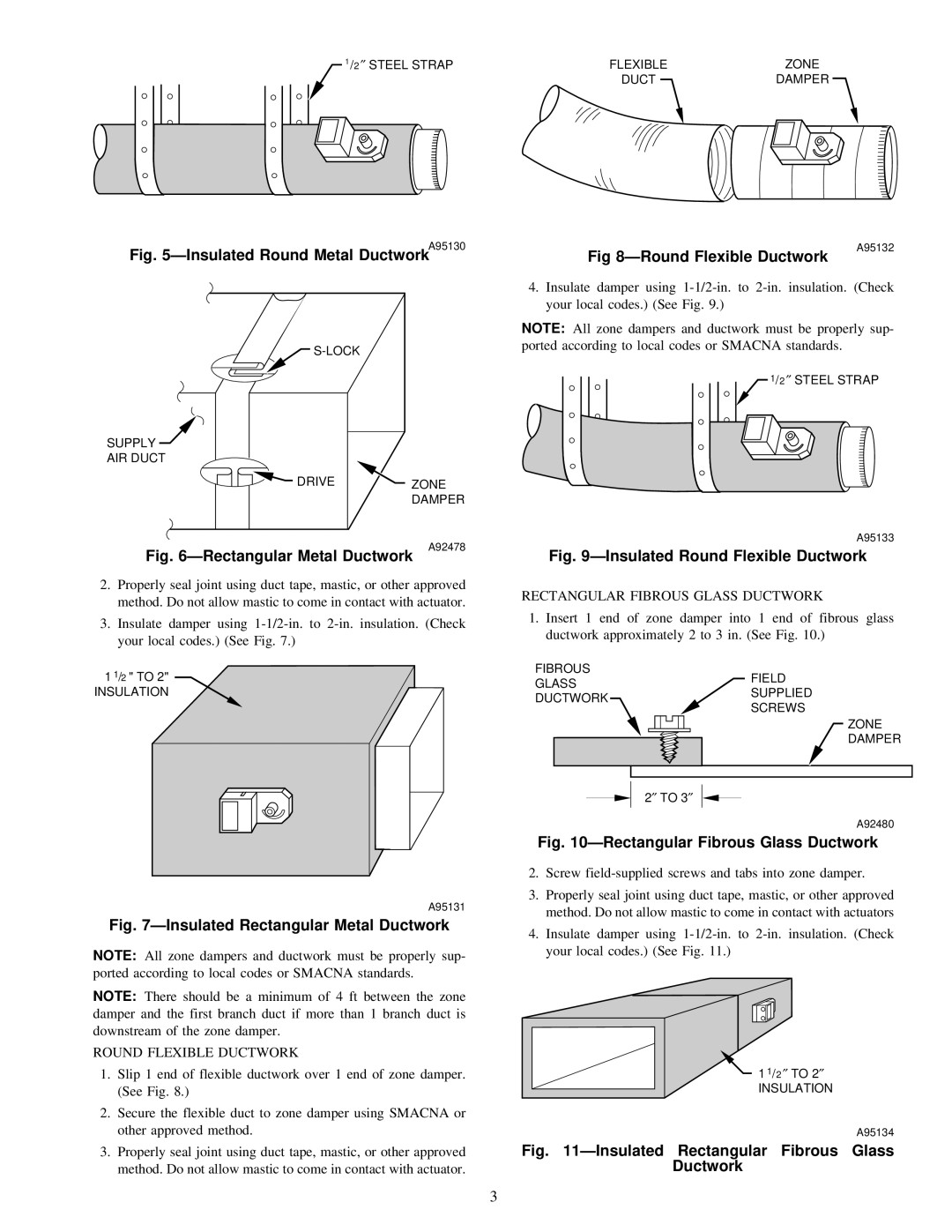
![]() 1/2 ″ STEEL STRAP
1/2 ″ STEEL STRAP
FLEXIBLE | ZONE |
DUCT | DAMPER |
Fig. 5ÐInsulated Round Metal DuctworkA95130
Fig 8ÐRound Flexible Ductwork
A95132
![]() S-LOCK
S-LOCK
SUPPLY![]()
AIR DUCT
![]()
![]()
![]() DRIVE
DRIVE ![]() ZONE
ZONE
DAMPER
4.Insulate damper using
NOTE: All zone dampers and ductwork must be properly sup- ported according to local codes or SMACNA standards.
![]() 1/2 ″ STEEL STRAP
1/2 ″ STEEL STRAP
A95133
Fig. 6ÐRectangular Metal Ductwork
A92478
Fig. 9ÐInsulated Round Flexible Ductwork
2. Properly seal joint using duct tape, mastic, or other approved method. Do not allow mastic to come in contact with actuator.
3. Insulate damper using
1 1/2 " TO 2"
INSULATION
A95131
Fig. 7ÐInsulated Rectangular Metal Ductwork
NOTE: All zone dampers and ductwork must be properly sup- ported according to local codes or SMACNA standards.
NOTE: There should be a minimum of 4 ft between the zone damper and the first branch duct if more than 1 branch duct is downstream of the zone damper.
ROUND FLEXIBLE DUCTWORK
1.Slip 1 end of flexible ductwork over 1 end of zone damper. (See Fig. 8.)
2.Secure the flexible duct to zone damper using SMACNA or other approved method.
3.Properly seal joint using duct tape, mastic, or other approved method. Do not allow mastic to come in contact with actuator.
RECTANGULAR FIBROUS GLASS DUCTWORK
1.Insert 1 end of zone damper into 1 end of fibrous glass ductwork approximately 2 to 3 in. (See Fig. 10.)
FIBROUS
GLASS | FIELD | |
SUPPLIED | ||
DUCTWORK | ||
SCREWS | ||
| ||
| ZONE | |
| DAMPER |
2″ TO 3″
A92480
Fig. 10ÐRectangular Fibrous Glass Ductwork
2.Screw
3.Properly seal joint using duct tape, mastic, or other approved method. Do not allow mastic to come in contact with actuators
4.Insulate damper using
![]() 1 1/2 ″ TO 2″
1 1/2 ″ TO 2″
INSULATION
A95134
Fig. 11ÐInsulated Rectangular Fibrous Glass
Ductwork
3
